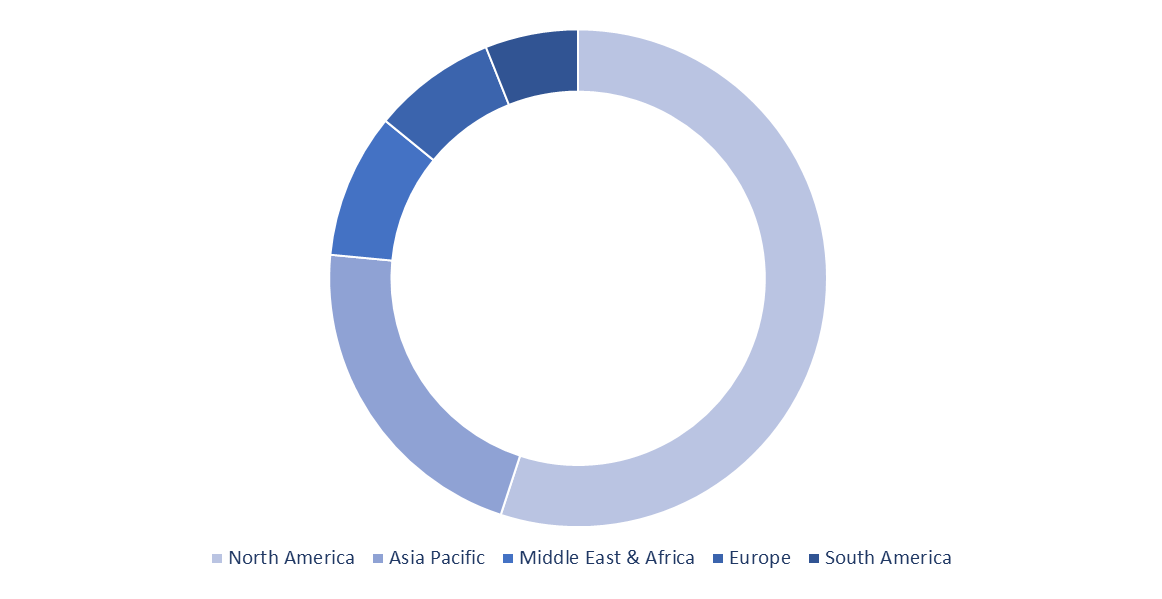Synthetic Biology market is growing significantly owing to the adoption of synthetically produced living systems in environment, industry, and healthcare applications. Synthetic biology refers to the redesigning of organisms by engineering them to have new properties and abilities for useful purposes.
Synthetic biology plays a vital role in the development of novel drugs with improved functionalities. Increasing investment on drug discovery is contributing significantly towards the rise in demand for synthetic biology.
The advancements in tissue engineering and development of advanced enzymes for industry applications are expected to supplement growth of the global synthetic biology market. Focused research activities for development of biologically engineered microorganisms for bioremediation of environment are anticipated to bolster growth of the global synthetic biology market during the forecast period.
North America contributed the largest share to the global synthetic biology market in 2019 and is anticipated to be a dominating geography throughout the forecast period owing to increasing investment in development of advanced therapeutics & novel drugs, advancements in gene therapy & bioengineering, and presence of leading manufacturers& technology providers.
The adoption of synthetic biology in the development of synthetic enzymes for food production and environmental applications is expected to drive the North America synthetic biology market in coming years. Europe contributed a prominent share to the global synthetic biology market in 2019 and is anticipated to grow significantly during the forecast period.
Asia Pacific is anticipated to be the most lucrative market during the forecast period owing to increasing investment in expansion of pharmaceutical and biotechnology industry, and strengthening of healthcare infrastructure.

The report titled “Synthetic Biology Market - Global Market Share, Trends, Analysis and Forecasts, 2023-2032”, wherein 2021 is historic period, 2022 is the base year, and 2023 to 2032 is forecast period. Additionally, the study takes into consideration the competitive landscape, wherein the report would provide company overview and market outlook for leading players in the global synthetic biology market.
Furthermore, the report would reflect the key developments, global & regional sales network, business strategies, research & development activities, employee strength, and key executive, for all the major players operating in the market. For instance, Thermo Fisher Scientific Inc. reported revenues of USD 25.5 billion in 2019 and the product segment analysis of the company indicates that Laboratory Products & Services business segment of the company dominated revenue in 2019.
The global synthetic biology market is segmented based on tools, technology, applications, and geography. Based on tools, the global synthetic biology market is segmented into oligonucleotides & synthetic DNA, enzymes, cloning technologies kits, synthetic cells, chassis organisms, and xeno-nucleic acids. Based on technology, the global synthetic biology market is segmented into gene synthesis, genome engineering, sequencing, site-directed mutagenesis, measurement & modeling, microfluidics, nanotechnology, bioinformatics, and others. Based on applications, the global synthetic biology market is segmented into pharmaceuticals, drug discovery and therapeutics, artificial tissue & tissue regeneration, biofuel & renewable energy, biomaterials & green chemicals, synthetic food & beverage, bioremediation, bio-sensing, and others. Based on geography, the global synthetic biology market is segmented into North America, Europe, Asia Pacific, Middle East & Africa, and South America.
The research provides in-depth analysis of prominent players holding majority share of the global market with a focus on all operating business segment, and would identify the segment of the company focusing on synthetic biology products and technology. Further, market share of prominent companies in the global synthetic biology market would also be estimated.
For instance, Thermo Fisher Scientific Inc. operates through four business segments namely Life Sciences Solutions, Laboratory Products & Services, Specialty Diagnostics, and Analytical Instruments. The synthetic biology products are delivered under Life Sciences Solutions business segment of the company with revenue contribution of US$ 6.38 billion in 2019.
The study takes into consideration the key competitive information such as business strategy, product portfolio, key development, SWOT analysis, and research and development focus of all the synthetic biology companies. The global synthetic biology market study would take into consideration the participants engaged throughout the ecosystem of the market, along with their contribution.
Product portfolio would focus on all the products under the synthetic biology business segment of the company. Similarly, the recent development section would focus on the latest developments of company such as strategic alliances and partnerships, merger and acquisition, new product launched and geographic expansion in the global synthetic biology market.
Major players active in the global synthetic biology market include Agilent Technologies, Inc., Agrivida, Inc., Algenol Biofuels, Inc., Amyris, Inc., ATG:biosynthetics GmbH, ATUM, Bayer AG, Bioneer Corporation, Biosearch Technologies, Inc., Bristol-Myers Squibb, CBC Comprehensive Biomarker Center GmbH, Codexis, Inc., Cyrus Biotechnology Inc., DuPont, Inc., Eurofins Genomics GmbH, Evolva SA, Gene Script Corporation, GeneWorks Pty Ltd., GenScript Biotech Corporation, Ginkgo Bioworks, Integrated DNA Technologies, Inc., Intrexon Corporation, Merck KGaA, New England Biolabs, Inc., Novozymes A/S, Synthego Corporation, Synthetic Genomics, Inc., TeselaGen, Thermo Fisher Scientific Inc., and Twist Bioscience.
The global synthetic biology market is segmented
Based on tools
- Oligonucleotides & synthetic DNA
- Enzymes
- Cloning technologies kits
- Synthetic cells
- Chassis organisms
- Xeno-nucleic acids
Based on technology
- Gene synthesis
- Genome engineering
- Sequencing
- Site-directed mutagenesis
- Measurement & modeling
- Microfluidics
- Nanotechnology
- Bioinformatics
- Others
Based on applications
- Pharmaceuticals
- Drug discovery and therapeutics
- Artificial tissue & tissue regeneration
- Bfuel & renewable energy
- Biomaterials & green chemicals
- Synthetic food & beverage
- Bioremediation
- Bio-sensing
- Others
By Region
- North America
- Europe
- Asia Pacific
- Middle East & Africa
- South America